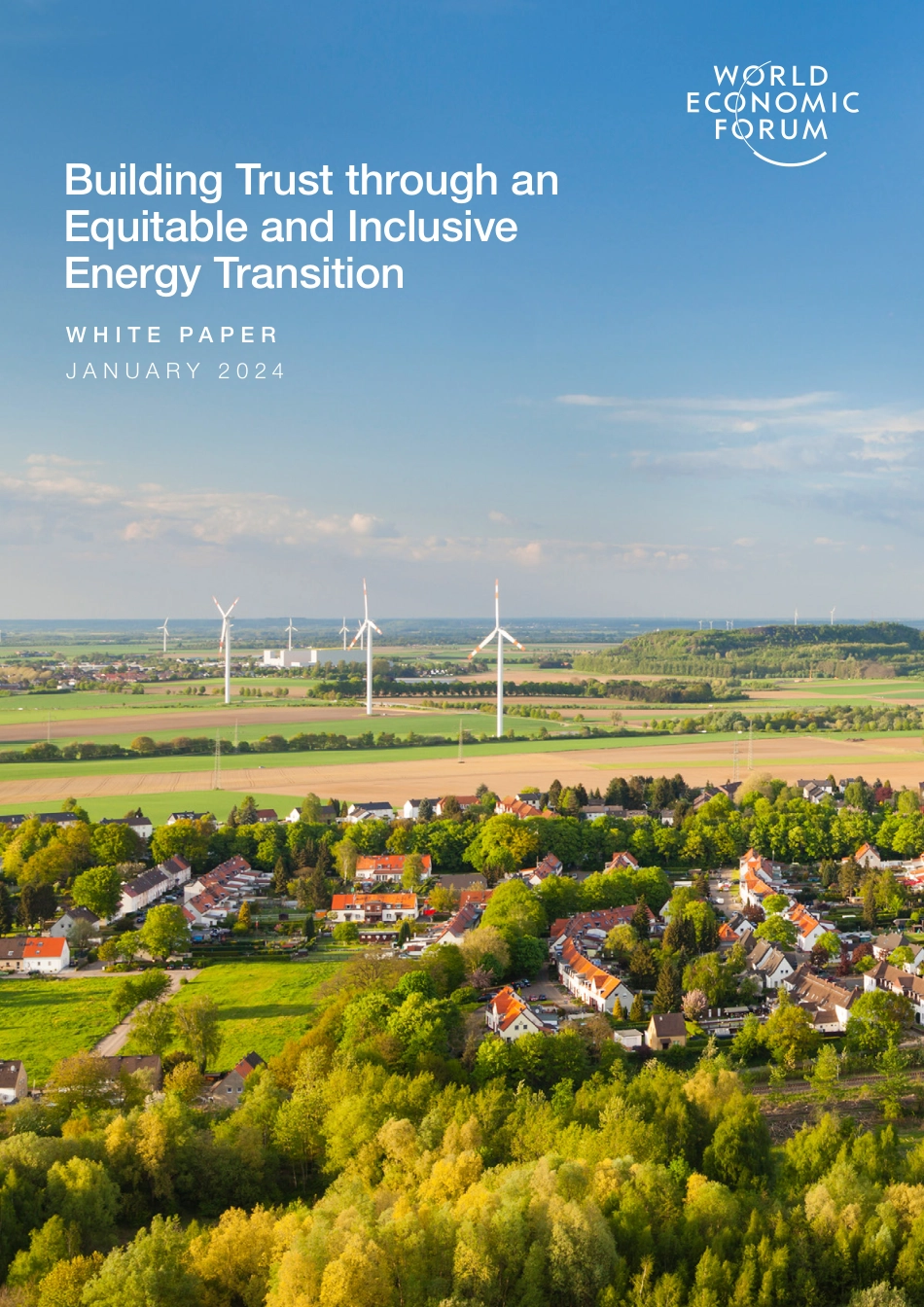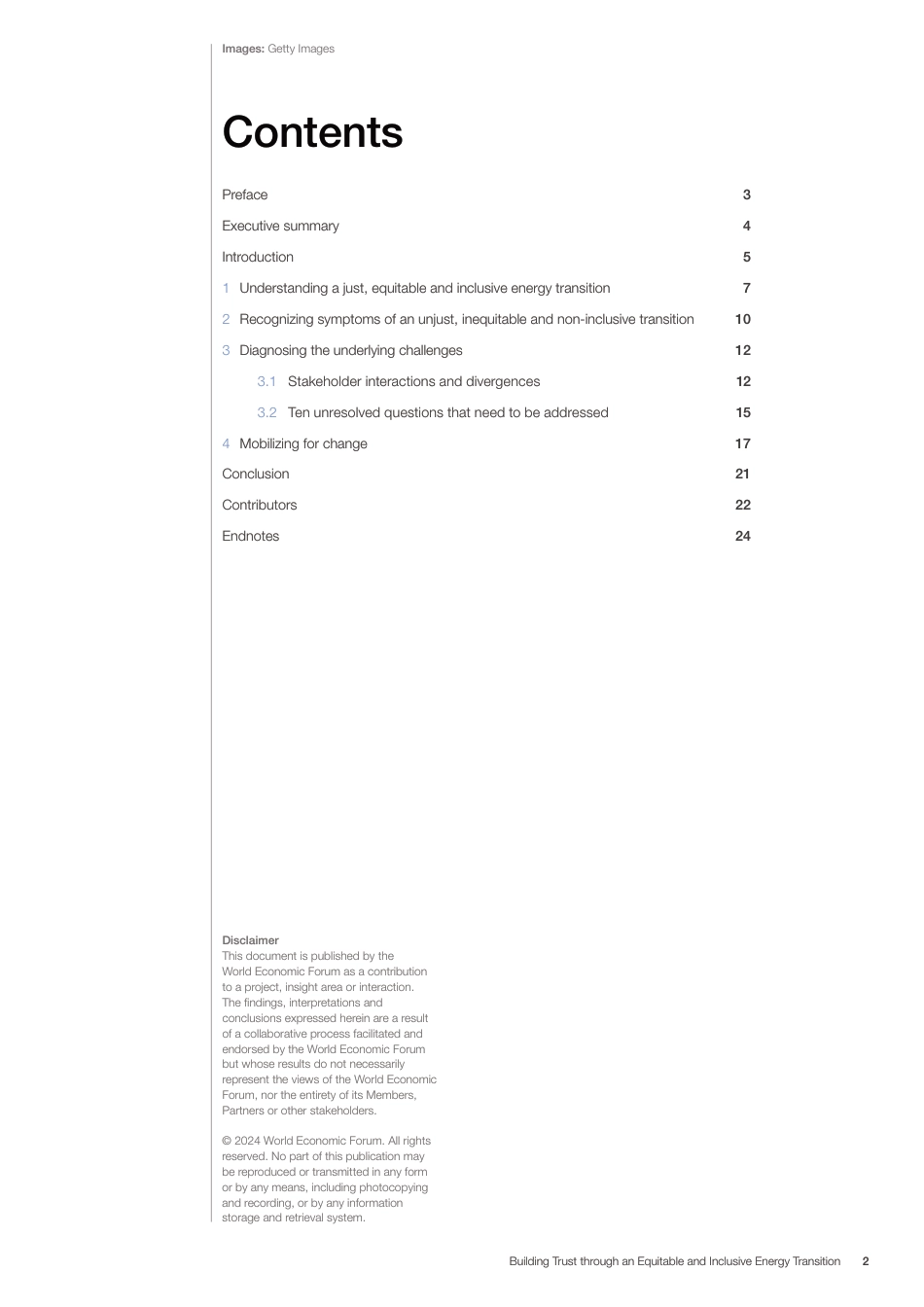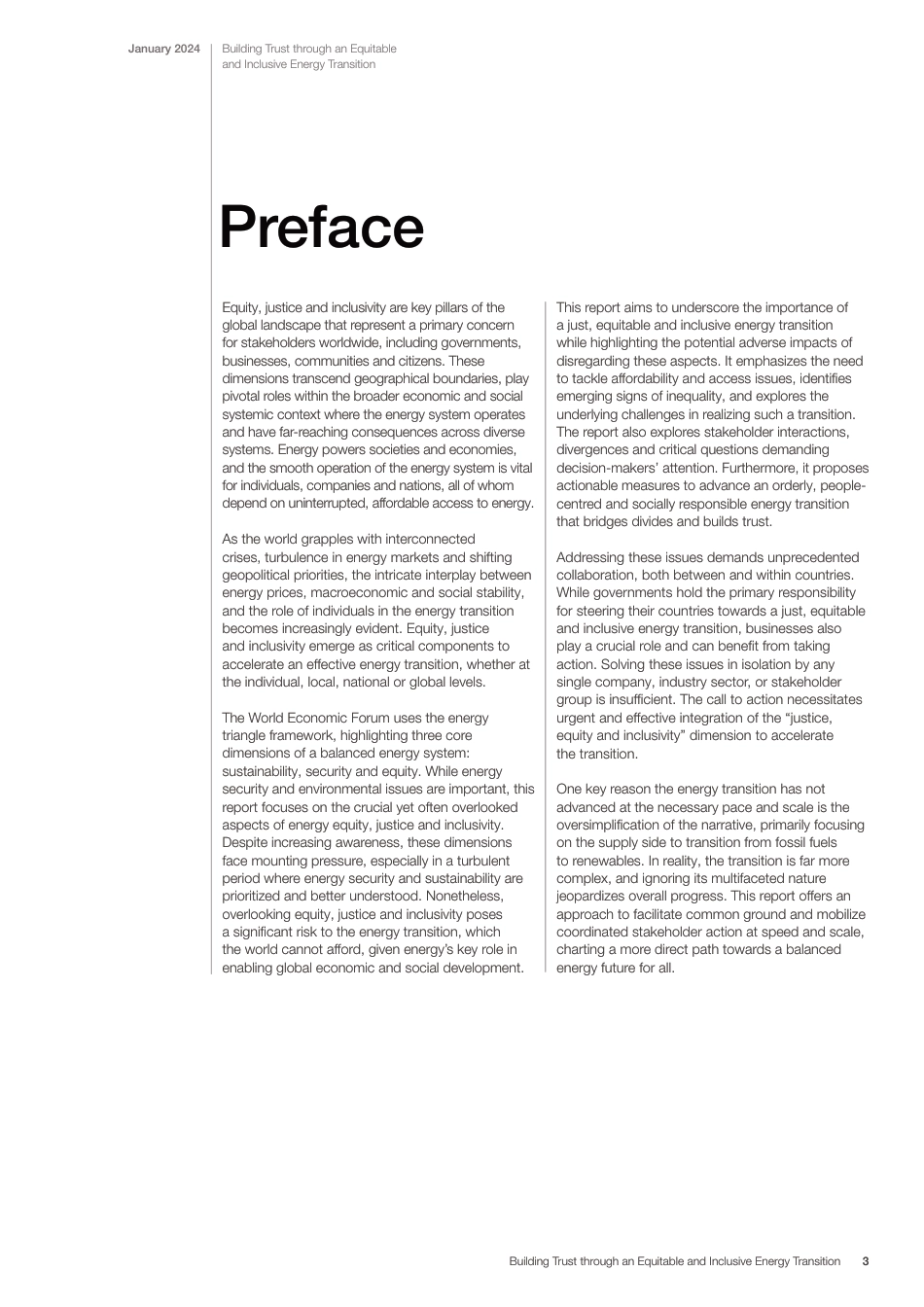Building Trust through an Equitable and Inclusive Energy TransitionW H I T E P A P E RJ A N U A R Y 2 0 2 4Images: Getty Images© 2024 World Economic Forum. All rights reserved. No part of this publication may be reproduced or transmitted in any form or by any means, including photocopying and recording, or by any information storage and retrieval system.Disclaimer This document is published by the World Economic Forum as a contribution to a project, insight area or interaction. The findings, interpretations and conclusions expressed herein are a result of a collaborative process facilitated and endorsed by the World Economic Forum but whose results do not necessarily represent the views of the World Economic Forum, nor the entirety of its Members, Partners or other stakeholders.ContentsPreface 3Executive summary 4Introduction 51 Understanding a just, equitable and inclusive energy transition 72 Recognizing symptoms of an unjust, inequitable and non-inclusive transition 103 Diagnosing the underlying challenges 123.1 Stakeholder interactions and divergences 123.2 Ten unresolved questions that need to be addressed 154 Mobilizing for change 17Conclusion 21Contributors 22Endnotes 24Building Trust through an Equitable and Inclusive Energy Transition2PrefaceEquity, justice and inclusivity are key pillars of the global landscape that represent a primary concern for stakeholders worldwide, including governments, businesses, communities and citizens. These dimensions transcend geographical boundaries, play pivotal roles within the broader economic and social systemic context where the energy system operates and have far-reaching consequences across diverse systems. Energy powers societies and economies, and the smooth operation...



